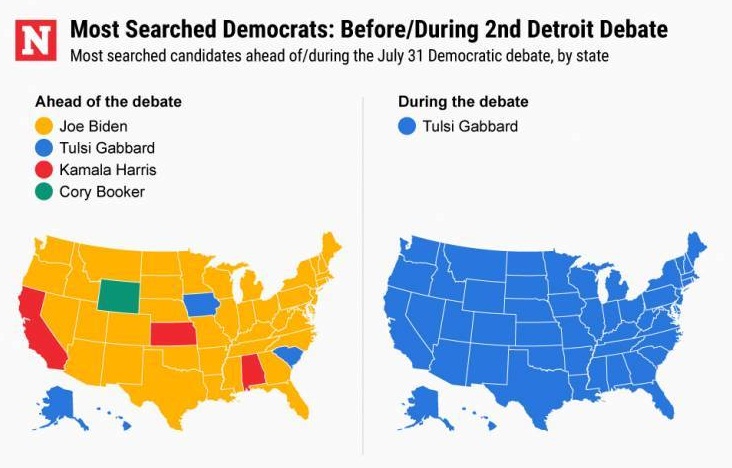In 2015, just as the U.S. began realigning its alliances away from an increasingly Islamist opposition and toward a mostly Kurdish group of militias, Russia joined Iran in directly supporting Assad, allowing his armed forces and their allies to turn the tides of the conflict. As the Syrian armed forces and their supporters began to retake the country through 2016, Gabbard voted against an anti-Assad House resolution she described as "a War Bill—a thinly veiled attempt to use the rationale of 'humanitarianism' as a justification for overthrowing the Syrian government of Assad," whom she referred to as "a brutal dictator."

A month later, Republican Virginia State Senator Richard Black traveled to Damascus to meet with Assad, whom he had sent a warm letter in 2014 thanking him for defending Syria's Christians and small Jewish community against the jihadis of the Islamic State militant group (ISIS), Al-Qaeda and other organizations. Shortly after President Donald Trump's election in November 2016, Gabbard met with the Republican leader-to-be who shared her skepticism about U.S. support for Syrian insurgents and would go on to end it.
Just days into Trump's term, Gabbard's revelation that she met Assad during a secret trip to Lebanon and Syria sparked an instant controversy that has yet to abate in the U.S. She has since turned on the president's Syria policy as his more hawkish tendencies manifested themselves in strikes on government targets and an expansion of the anti-ISIS mission there to also include ensuring Assad's departure and beating back Iranian influence, but as she enters the domestic political arena she has so far struggled to make a name for herself—until now.












